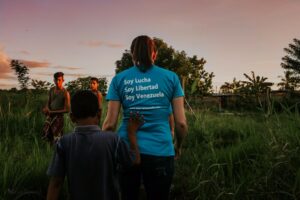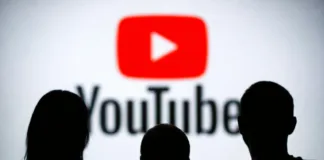It’s a Silent Euphoria – Venezuela’s End Near or Just More Talk?
By: Carlos Taylhardat – 3 Narratives News | August 24, 2025
Intro: Once praised as the marvel of the Americas with fertile soils, world-class cacao and coffee, the greatest oil reserves, rivers of minerals, and laughter in the streets—Venezuela now churns with something quieter: a “silent euphoria.” It’s a whisper that maybe, finally, change is coming. But whispers can be hollow. Nearly eight million Venezuelans have been uprooted abroad, turning the country into a hollow memory. Still, in Caracas cafés, humid streets, and silent crowds, something subtle pulses: a fragile hope. My family has been scarred too; my oldest brother, Carlos Augusto Taylhardat, once Fleet General Manager of PDVSA, was deported at gunpoint out of Venezuela, his career erased overnight. My Father represented Venezuela abroad initially as a Naval Captain and later as a diplomat in Washington, DC, Toronto, Lisbon, Brasilia, Iraq and Beirut, and my uncle represented Venezuela as an ambassador, most notably UN in Brussels and New York. This story is personal.
Context
Twenty-six years of Chávez and Maduro rule have etched deep lines across the nation’s heart, dismantling corporations, saturating the military, eroding institutions, until gasoline now costs less than water, but bread is unattainable. Maduro blames “foreign imperialism.” The opposition blames corruption and collapse from within. The result: nearly 7.9 million displaced, 6.7 million drifting through Latin American cities, families torn apart. And here, in the shadow of decay, the hum of possibility grows. As U.S. Attorney General Pam Bondi declared: “He is a threat to our national security… Maduro will not escape justice. He will be held accountable for his despicable crimes.”
Narrative 1: The Regime’s Twilight?
In Washington, Bondi raised the stakes with a $50 million bounty on Nicolás Maduro’s head, accusing him of presiding over one of the world’s largest narco-trafficking syndicates and seizing $700 million in assets, planes, accounts and properties. Warships hover offshore. This is not rhetoric; this is pressure with weight. Making one wonder what the American Government plans to do to keep their promise to hold Maduro accountable? What else is going on that we will not know until he is in custody as a possible sailmate of Guzo Guzman?
Into that charged air steps María Corina Machado: engineer turned child advocate turned rebel politician. Her voice is soft but unyielding. She speaks not of coups or generals, but of schools, lunch programs, and safe streets for children. Yet when she stands, she radiates resolve, as if compassion and defiance are not opposites but twin powers. She has become, for many, both guardian and warrior; she’s someone who can speak the language of care and strength, at once.
Video: A closer look at the regime’s twilight. Source: YouTube
Narrative 2: Echoes of Resistance
History drags its feet through Venezuela’s story. Chávez’s 1992 coup failed but made him a symbol. The 2002 coup unseated him for forty-seven hours before he returned, stronger. For weeks the rebel Generals were kept safely under the protection of hundred thousands of civilians.
In 2017, police pilot Óscar Pérez launched grenades from a stolen helicopter and later posted haunting videos of defiance. Months after, he was killed in a raid broadcast on social media. A martyr, but no liberator. For those of us watching online, including myself, it was both surreal and devastating, a moment when it felt as though history might pivot, before it slammed shut again.
⚠️ Warning: The following video contains graphic and disturbing content.
Video: The final stand of Óscar Pérez. Source: YouTube
Later, Juan Guaidó declared himself interim president in 2019, only to see momentum suffocate in exile and international inertia. Every attempt failed through dissension or elite collapse. The army stayed intact, making us wonder if someone betrayed his attempt to restore democracy in Venezuela. Foreign allies patched leaks. The cycle began again. In the end, Venezuela was left to continue its decline.
Narrative 3: The Silent Story
This isn’t about generals or navies, it’s about a teacher who sells coffee on the sidewalk because her monthly salary is worth less than a bag of rice. “I never thought I’d be serving coffee in the street,” she tells a BBC reporter, “but it’s either that, or watch my children go hungry.” Her story is not unusual. Across Caracas, once-proud professionals, teachers, engineers, and doctors hustle as street vendors, hairdressers, and delivery drivers, all scrambling to patch together a living from an economy that collapsed under its own contradictions.
On the coast, a fisherman scans offshore silhouettes, not for tuna but for warships. “I grew up learning the sea could feed us,” he says, gesturing toward the horizon. “Now, the sea is politics. Out there is America, and in here is hunger.” His father once dreamed of exporting fish to Europe; now his son worries whether there will be enough to bring home dinner.
Children, though, still laugh. In the barrios, where homes are patched with sheet metal and bright paint, soccer balls bounce through the alleyways. The laughter is a kind of resistance in itself, a reminder that joy can coexist with despair. A mother watching from her doorway murmurs, “We don’t let them see the sadness. We save that for when they sleep.”
These acts of endurance form a web of quiet defiance. Solidarity networks and neighbours pooling food, church groups smuggling medicine, WhatsApp chains sharing jokes about Maduro’s speeches—keep people afloat. In the absence of functioning courts, hospitals, or schools, the people themselves have become the institution. A grandmother in Maracaibo jokes, “We have no state, but we have each other. Maybe that’s better.”
But the erosion is real. Hospitals lack bandages; universities lose professors to emigration; judges are replaced with party loyalists. The slow rot of Venezuela’s institutions has done what no foreign army could: hollowed out the republic from the inside. Its fragility is laid bare not in dramatic explosions, but in daily silences—the silence of a closed pharmacy, the silence of a darkened classroom, the silence of neighbours who no longer expect electricity after sundown.
And yet, within that silence, a pulse. The quiet courage of a nation that refuses to forget how to laugh, to share, to hope. It is not the roar of revolution, but the murmur of survival and maybe perhaps, the first faint sound of something beginning to change.
What’s Different This Time?
Three forces set this moment apart: the fervor of U.S. engagement, the exhaustion of a society that has lost nearly eight million souls, and the presence of María Corina Machado—a leader whose compassion is not weakness, but a new kind of strength. Yet even these forces do not guarantee victory. Change here may arrive—or slip away like smoke.

Photo: “Soy Lucha, Soy Libertad, Soy Venezuela” — a quiet emblem of resistance and hope.
Machado’s story illustrates why this moment feels different. She ran for the presidency, only to be barred from running under new government-imposed rules. She then threw her support behind another candidate, who was also disqualified. On her third attempt, she managed to back the man now recognized by much of the international community as Venezuela’s incumbent president in exile, sheltered under Spanish protection. Few politicians could have pivoted so quickly and so effectively, but Machado’s determination is relentless.
Her most remarkable move came after the most recent election. Anticipating fraud, she had members of her team request the official tallies from each voting station. Before the Maduro government realized what she was doing, Machado had already secured records from roughly 80 percent of the stations. Those numbers showed that Maduro’s government had not won, but lost—by a wide margin. For the first time in decades, the opposition had proof, not just suspicion, of electoral theft. Machado has the receipts, and she is not letting go.
Overlaying this domestic struggle is an American interest less about Venezuela’s democracy and more about fentanyl. Attorney General Pam Bondi’s indictment of Maduro focused not on corruption in Caracas but on drugs streaming north. She accused Maduro’s networks of pushing cocaine laced with fentanyl into U.S. markets, poisoning American communities. Fentanyl overdoses have killed hundreds of thousands of Americans in recent years. In Bondi’s telling, Maduro is not just a dictator tormenting Venezuelans, but a trafficker responsible for American deaths. It is a framing that resonates deeply in Washington’s politics—perhaps more than any humanitarian concern could.
So what is different this time, according to this narrative? An undeniable truth, a leader with both grit and grace, and an American government promising accountability not out of altruism, but out of self-preservation. For the first time, the arc of Venezuela’s struggle intersects directly with the anxieties of U.S. domestic politics. That makes the pressure heavier—and the hope sharper.
Venezuelan Government’s Official Position
Maduro dismisses U.S. action as a “ridiculous smokescreen”—not justice, but piracy dressed as law. He insists his victory was legitimate, boasting of record numbers of votes, and points to the tallies published by state institutions as proof. To him, Machado’s claims are “lies from the empire,” designed to destabilize Venezuela. His ministers echo the line: the crisis is not born inside, but imposed from outside. In their telling, it’s not corruption or collapse—it’s sovereignty under siege.
Key Takeaways
- Nearly 7.9 million Venezuelans displaced, 6.7 million in-region.
- Bondi’s $50 million bounty is an unprecedented gambit from the U.S.
- Past uprisings—from coups to a helicopter attack—ended in defeat.
- María Corina Machado blends maternal empathy and militant clarity, offering a new model of leadership.
- Maduro persists in framing the crisis as external aggression, while institutions quietly crumble.
Questions This Article Answers
- Why have past regime-change attempts faltered in Venezuela?
- What marks the current U.S. posture as different from before?
- What role have foreign allies played in propping up Maduro?
- Who is María Corina Machado, and what makes her leadership compelling?
- How does Maduro continue to narrate the crisis to his people?
Cover Image: A dusky Caracas skyline, naval silhouettes offshore, a lone fisherman on the shore—watching the dawn of something new, or the echo of what came before.
Video: Global perspectives on Venezuela’s unfolding crisis. Source: YouTube



Your blog is a breath of fresh air in the often mundane world of online content. Your unique perspective and engaging writing style never fail to leave a lasting impression. Thank you for sharing your insights with us.
[…] and civilian alike—are ready to believe that change is possible, and safe. The silent euphoria […]
[…] talks may end with a handshake, a communiqué, or a sentence about cooperation. The silent cost is paid daily, in […]